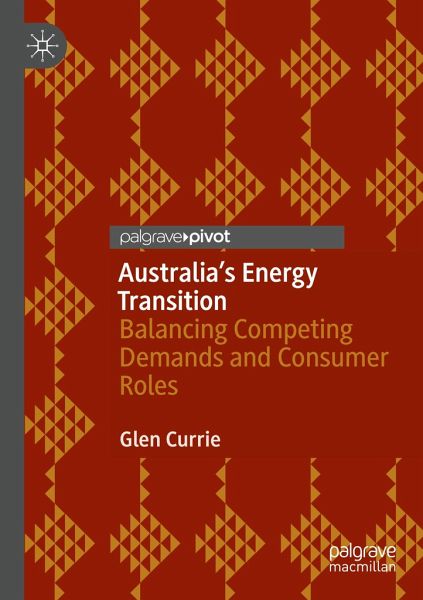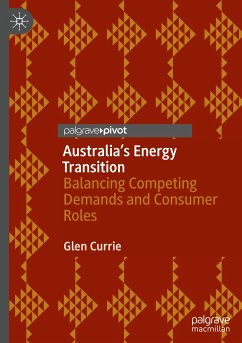
Australia's Energy Transition
Balancing Competing Demands and Consumer Roles
Versandkostenfrei!
Versandfertig in 6-10 Tagen
46,99 €
inkl. MwSt.
Weitere Ausgaben:

PAYBACK Punkte
23 °P sammeln!
This book studies Australia, a country characterized by the highest concentration of domestic photovoltaic systems. In addition, the high level of solar energy that Australia receives makes these systems a significant part of its energy mix. International electricity system managers take note; your systems are heading this way. The energy transition is an emerging field, and few texts have been published that can help energy planners as this book does. The research presented is sociotechnical in nature, and reveals that the main challenge in the energy transition is its emerging social role. V...
This book studies Australia, a country characterized by the highest concentration of domestic photovoltaic systems. In addition, the high level of solar energy that Australia receives makes these systems a significant part of its energy mix. International electricity system managers take note; your systems are heading this way. The energy transition is an emerging field, and few texts have been published that can help energy planners as this book does. The research presented is sociotechnical in nature, and reveals that the main challenge in the energy transition is its emerging social role. Very few works combine the social and technical fields of energy. Given its scope, the book will appeal to readers interested in policy, regulation, and energy systems, including government employees involved in energy system management all around the world.














